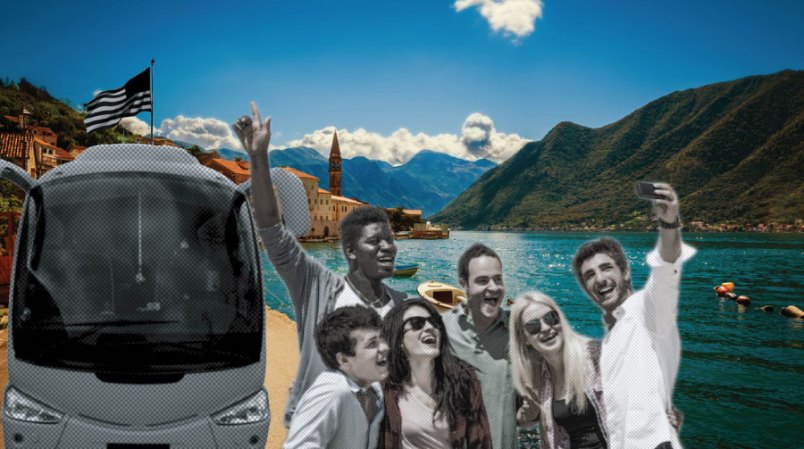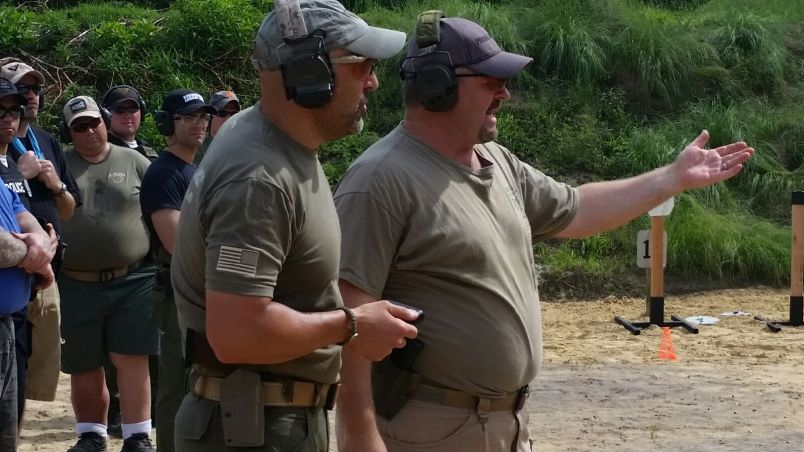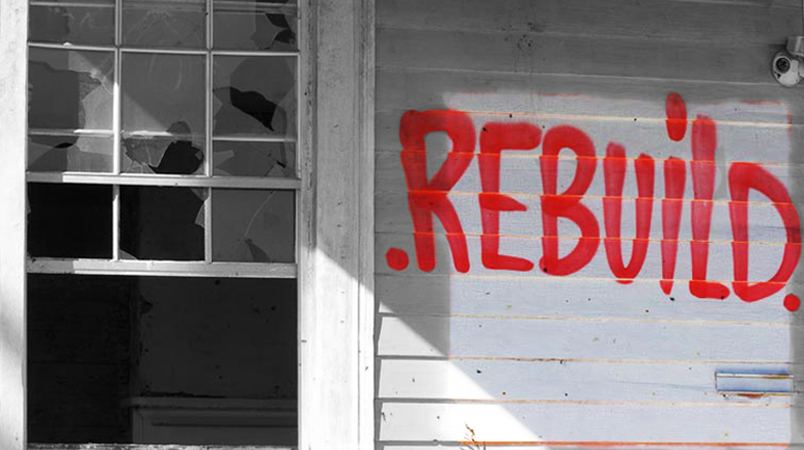Over the summer, while on holiday in the former Yugoslavian nation of Montenegro, I got to talking to a salty character while sipping beers in a beach bar overlooking the Adriatic sea. In the summer months, Montenegro is essentially the South of France for the Russian and Balkan set, and this new local friend of mine embodied the ethos of the region perfectly: His idea of vacation was to chain-smoke cigarettes while sunning his leathery skin and talking cynically about the state of world affairs.
Mercifully unaware of my U.S. passport, he embarked on a diatribe about the various shortcomings of the American way of life, ending with five words that have since stuck with me: “Americans are on another planet.”
Any American who has spent considerable time outside the U.S. knows to take anti-American sentiment with a coarse grain of salt. There are myriad, sometimes legitimate reasons why some foreigners dislike us, and it’s often better to simply let them say their piece when you’re lacking home court advantage. I’ve sat through a dinner with a French boyfriend’s father who insisted he will never set foot in America (it would offend his sense of liberté), listened to my South African friends mock how American tourists wear safari vests even when they’re walking through Cape Town’s central business district, and cringed when my British aunt told me her least favorite guests to host at her English countryside bed and breakfast are those from the U.S.A.
But in this case, I wasn’t just humoring my new Montenegrin acquaintance. Looking around 10th century village of Perast where I was staying, I became acutely aware of why this man might harbor these ideas. Any Serb, Montenegrin, Russian or western European on vacation there during August could be found doing a predictable combination of the following: drinking, tanning, swimming, smoking or eating a 3-hour-long lunch that involves several bottles of wine. Sightseeing was limited to the pages of a book or magazine, or what was visible across the Bay of Kotor. Attire was no shoes, no shirt, no cares.
But the Americans passed through almost exclusively by way of large tour buses, usually for just a few hours before venturing somewhere else on the coast. They walked through the one-road town in sensible walking shoes; strapped large, imposing cameras around their necks; missioned up the ancient steps to see the cathedral; and then paid small boat operators to ferry them to the Orthodox church to take a picture there, too. I can only imagine when they found time to actually be on holiday after they were done documenting it, much less interact with anyone other than the service industry employees and souvenir hawkers. In fact, at the beachfront “Pirate Bar” where nearly every local was hanging out, the only Yank around was yours truly.

While this small village is an anecdotal example, it’s not hard to find evidence that Americans do vacation all wrong. A staggering 41 percent of Americans lucky enough to have paid time off don’t use it. When we do venture away from home, our approach to traveling either falls in line with our puritanical work ethic—relentless and highly structured—or, we go to the other end of the spectrum: a week-long spring break bender that we cant remember afterwards, save for the Instagram snaps. When traveling beyond North America, it’s rare that an American doesn’t have an agenda, be it visiting five European nations in ten days (a notion a European vacationer would find absurd and frankly, exhausting) or embarking on “voluntourism” in a developing country, an industry that is attracting 1.6 million volunteer tourists spending roughly $2 billion per year.
And while the Millennial generation may be reversing the perception that Americans never travel by making it more of a priority earlier in life, as a nation we still pale in comparison to the rest of the world. When it comes to the rite of passage known as a gap year, we see it as a bourgeois privilege instead of what many Canadians, Australians, Europeans, Israelis, New Zealanders, and South Africans use it as: an opportunity to live in foreign country for a year while working a minimum wage or service industry job.
To be fair, there are a number of reasons that contribute to our somewhat hurried and militant approach to travel. The first one is the most mindboggling: America is the only advanced economy in the world that does not have government-mandated, paid time off (there are only 12 other nations, all undeveloped, that share this woeful distinction). The United Arab Emirates grants its citizens 26 days per year, Lebanon gives 15, Kenya gives 21, and Germany gives 24. Americans get zilch.

There’s also the fact that America is geographically more cut off than other parts of the world. A seven-and-a-half-hour flight from Columbus, Ohio to London, England is certainly more prohibitive in terms of cost and time than one from Berlin to Rome. But when you compare American passport ownership (which stands at about 30 percent) to the similarly-oriented nation of Canada (more than 60 percent) and the even more disconnected nation of Australia (50 percent), that argument starts to fall apart. And when you consider the tremendous privilege of being entitled to visit 172 countries visa-free or visa on arrival—there are only six nations that are entitled to as many or more—that little blue book becomes even more of a shame to waste.
And, of course, many of us aren’t privileged enough to travel—though that perception is becoming increasingly flawed. Like so many industries in the internet era, travel is becoming cheaper and more attainable, with options like Skyscanner, Airbnb, Couchsurfing, and others obviating the need for travel agents and hotels completely. And while nothing replaces relaxed, longterm travel when it comes to learning about a place and its people, there are ways to create a shorter trip that mirrors the same experience. Americans could gain much-needed perspective by visiting one country instead of three, taking a trip solo, using public transportation, staying in a fringe residential neighborhood rather than a hotel in the city center, and listening to their bartender’s advice instead of a guidebook.
In my own travel repertoire, I tend to subscribe to author and TV host Anthony Bourdain’s way of thinking. He advises when visiting Paris, for example, to skip the Eiffel Tower (most Parisians haven’t been since they were five years old) and instead suggests mirroring locally relevant activities like having sex, drinking wine before noon, reading a weighty philosophy book, and taking a nap.

I couldn’t agree more, but wasn’t always this way for me. My travel lowlights include a trip to Kenya as a 17-year-old voluntourist and one too many nights as a drunk—and probably very obnoxious—American study abroad student. But through learning from these mistakes, a considerable amount of solo travel and several years spent living outside of the U.S. as a working adult, I’ve learned that all my most transformative overseas experiences have come by way of falling into situations that occur when you don’t have a schedule. Watching Premiere League football over calamari and beer with your taxi driver in Dar Es Salaam, getting invited for tea while lost on an ill-advised hike in the mountains of Morocco, or spending enough time in your Mallorcan Airbnb owner’s bar to snag a invitation to dinner with his friends—these aren’t things you can plan or pay for, and that’s why they’re worth it.
When it comes to our nation’s position in the world, it’s an unfortunate reality that Americans are perceived as being tone-deaf. We’re raised to believe that our country is the best, but in many ways we’re alone in that perception. Imagine the bafflement and frustration that, say, a Guatemalan civic organizer might feel when a group of American teenagers who have never been to a developing country before have arrived for two weeks to “make a difference.” Most average Americans have a tremendous amount to learn before they can start to do that. But the good news is, an off-the-beaten-track vacation to South America is a great way to start the process.
If we all took a page out of the Montenegrin’s playbook while on holiday and just did nothing and planned nothing for a while, I think we’d all be the better for it. After all, the more we try to accomplish while traveling abroad, the less we give ourselves the opportunity to do what would be most helpful to our image, our personal knowledge and global relations at large: listening.
All photos courtesy of the author.
Rosie Spinks is a freelance journalist and editor. Her work appears in publications including The Guardian, Slate, Marie Claire, GOOD, Outside, Sierra Magazine, The Ecologist, Dwell, Fest300 and others. In possession of two passports and nomadic tendencies, she grew up in L.A. and has reported and lived in cities in Europe and Africa.






